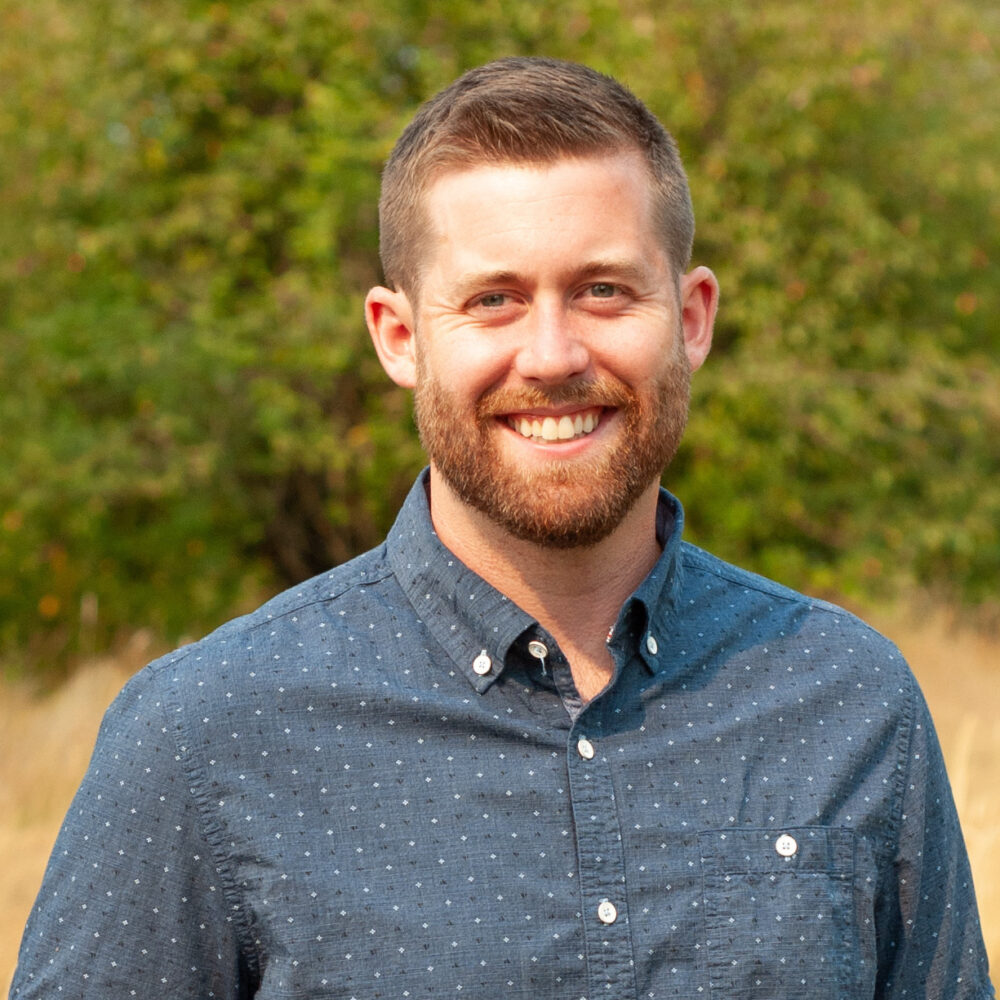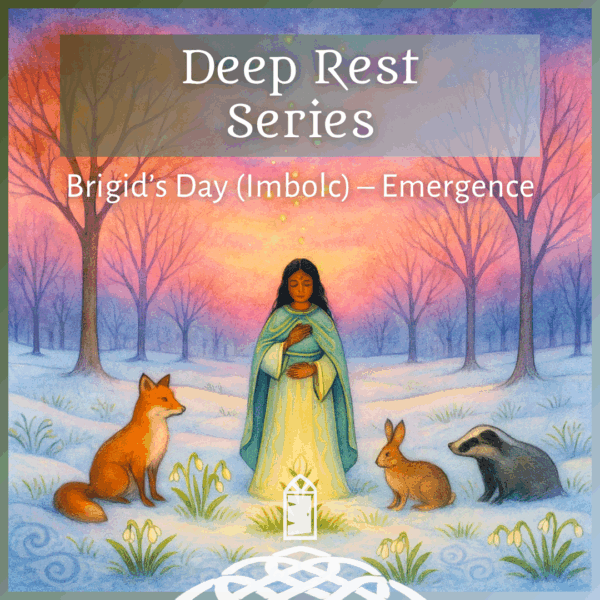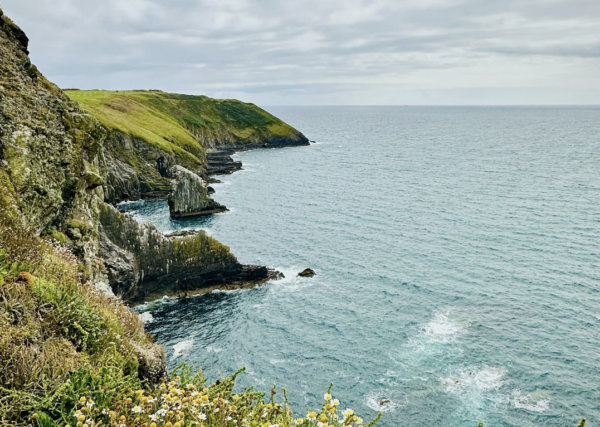I am delighted to share another beautiful submission to our Monk in the World guest post series from the community. Read on for Andrew Lang’s reflection Opening our Posture to the Sacrament of the Present Moment.
I sat atop the rocky Washington beach, watching the waves of the Puget Sound coming and crashing against the shoreline. Somewhere in the distance, a small boat had just steered itself through the passage, making its way to who knows where. The memory is faded by now, but I like to think it was the Victoria Clipper on its twice-daily trip, carrying people up and down the channel to and from British Columbia.
I had been there for hours, watching as the tide came in, moving closer and closer to where I perched myself, with my shoes and a book off to one side. The blue-green waterline was still many yards away, my bare feet not yet in danger of being overtaken, although I carefully minded it so as to not be surprised. Looking out beyond the rhythmic crashing and splashing of the waves, my eyes found themselves transfixed by a patch of calm about fifty feet offshore. It seemed such an odd reality that just past the turbulent activities of the right-before-me, there lived a space of such gentle stillness. I wondered what the critters swimming around thought of it: was it a peaceful oasis before the coming chaos? Was it a warning to turn back now to avoid rapid delivery to the shore? Or was it a gathering place for some school of young fish learning to navigate through the environment they call home?
It was as I stared deeply at this mysterious space that my imagination took me somewhere I had not yet been before, which seems to be one of the great benefits of beholding beauty. I imagined the body of water before me as an ever-expanding body of my ancestors, stretching back to the beginning of time, composed of all that had come before me. Its depths filled by protons, neutrons, and electrons just as I was, I became overwhelmed by a sense of cosmic kinship, as if I were witnessing a great family reunion. These same building blocks of life that manifested in everything I saw around me also helped to create me, which meant we were in some way biologically related, interconnected as part of a bizarre and peculiar web of being. Neil DeGrasse Tyson’s exclamation of “we are all stardust!” fluttered into my ears as if being spoken directly to me by the waves.
I imagined my Grandpa Gayle; my Grandma Alyce; my great-great-great-great Grandma Neely. Each of these people, with all of their own stories and narrative and fears, their own shadows and picadillos – all of us united through time and space by a curious and mysterious atomic bond. Sitting there, I experienced a part of what it means to embody a contemplative presence: to bear witness to the wonder of it all for as long as the moment will allow us.
But as it tends to do, the moment began to slip away as quickly as it had come and though I tried to cling to it, the normal wanderings of my mind crept back in regardless of my wishes. I lingered at the water’s edge, contemplating my experience, trying to draw conclusions where I could, but soon a family with young children pranced along the rocks and all hope for deeper thoughts disappeared. I watched as the adventurous young ones looked for beach crabs, investigated the multitudinous communities of mussels hanging onto the larger rocks, and laughed with joy as they discovered more of the world around them. Wasn’t it Mary Oliver who said we all have a place in this “family of things?” Here I sat at the feet of my ancestors, listening for their words of wisdom while partaking in the sacrament of the present moment.
I still try to make sense of what exactly I experienced that day as I sat and watched the waters. It seems as if I had ever-so-briefly seen beyond some sort of veil. Or perhaps there is no veil at all and I simply looked deeper than I ever had at what is always waiting to be seen: a momentary taste of that which is infinite and always present, a bit of eternal truth hidden in the expansive and connective nature of Life.

Andrew Lang is an educator in the Pacific Northwest, an alumnus of Richard Rohr’s Living School for Action and Contemplation, and author of Unmasking the Inner Critic: Lessons for Living an Unconstricted Life. Along with writing regularly, he facilitates workshops helping people to navigate their inner lives and explore their sense of identity, spirituality, and community. You can find more of his writings and offerings at www.AndrewGLang.com.


